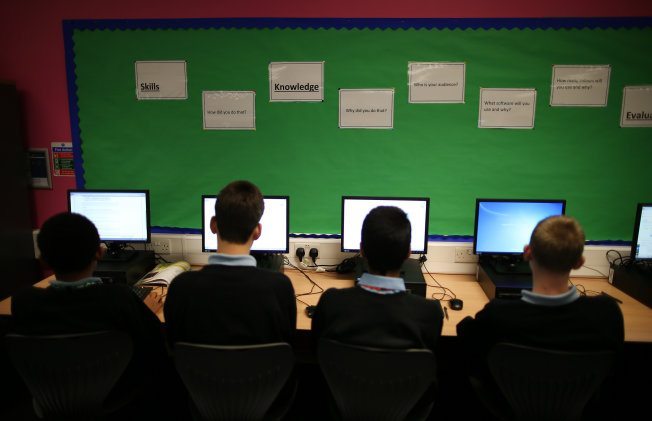Privacy Concerns Don’t Curb Use of Classroom Apps
But that convenience comes with a risk. Education apps and programs track students’ every response, developing profiles based on the answers they got right and the subjects with which they’re uncomfortable. Activists say this fact is not as widely known as it should be, and they want more accountability for the makers of education software, given that many apps for the general public sell data to third-party “data brokers” for unspecified uses.
“Any online app that a teacher signs up for a kid will collect their personal information, and depending on the state you live in that data can be shared from one company to another in an endless chain,” says Rachael Stickland, co-chairwoman of the Parent Coalition for Student Privacy. “We don’t know how it’s being used, but the enforcement and transparency mechanisms of these apps are insufficient.”
A survey published in May by The Learning Curve education firm showed 79 percent of parents were concerned with the privacy and security of their child’s data, while 76 percent expressed worry about how student information is collected and shared. Fear about student data also stems from the more than 533 data breaches that have exposed records collected by businesses, government agencies and other institutions so far this year, according to the Identity Theft Resource Center.
Stickland suggests the easy access to sellable student data is in part driving growth of the education software industry, which is worth an estimated $8.38 billion in the U.S., according to the Software & Information Industry Association and the Education Technology Industry Network.
The personal information of students is meant to be used only for educational purposes, but such private data has been collected and passed around outside schools much more broadly.
Parents in recent years sued the College Board for selling marketing firms personal information collected from standardized tests like the ACT or SAT. Colleges, summer camps and test-prep firms have also bought student-behavior profiles gleaned from tests conducted by the National Research Center for College & University Admissions.
Read More: Privacy Concerns Don’t Curb Use of Classroom Apps – US News

